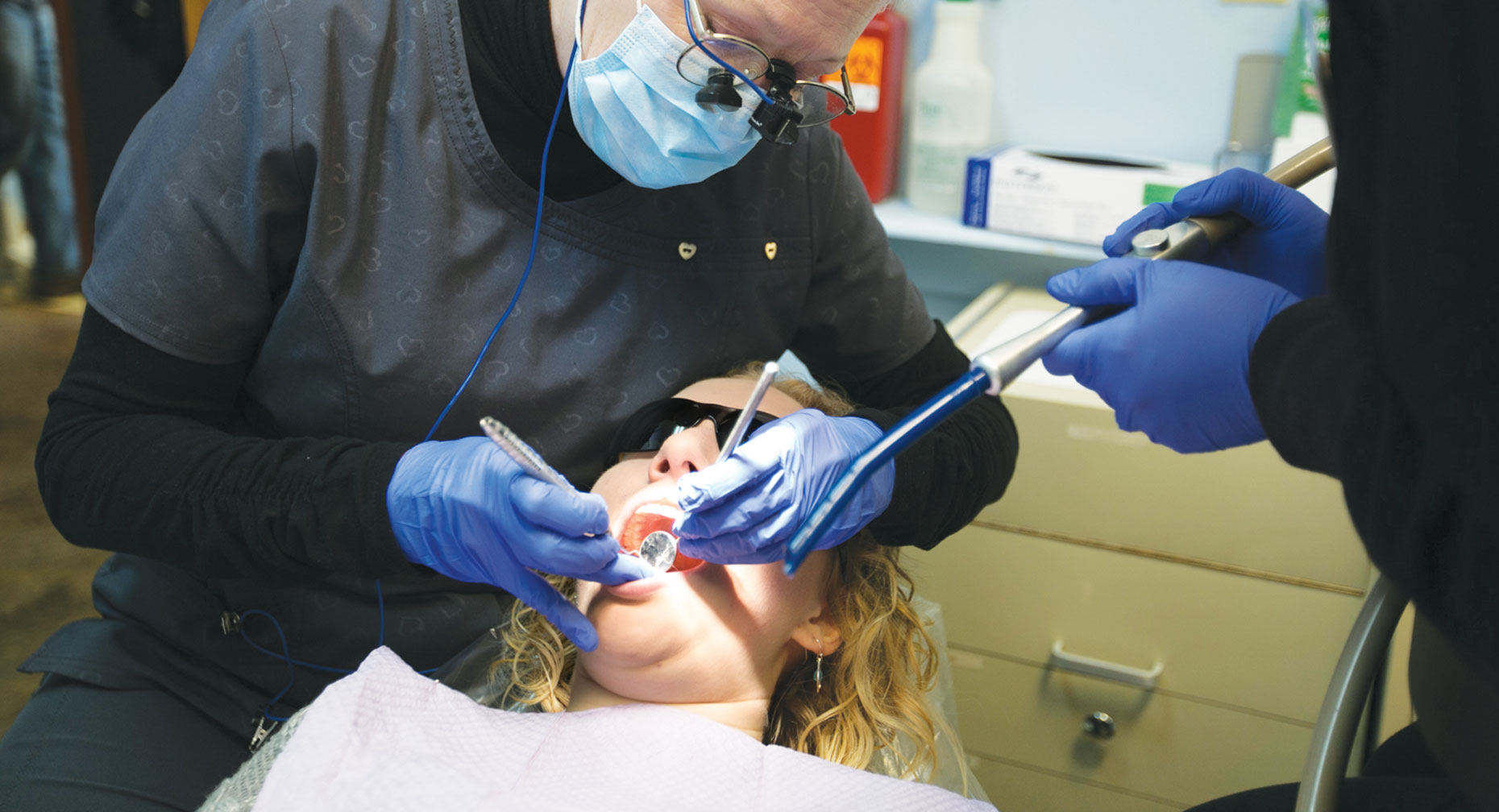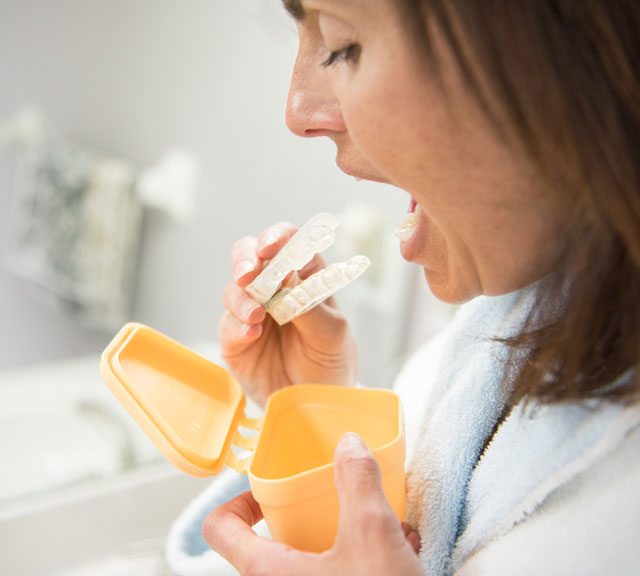The Nightly Grind: Understanding and Coping with Bruxism

Answer a few questions and we'll provide you with a list of primary care providers that best fit your needs.
If you sometimes wake up with a dull headache and a sore jaw, you may be feeling the effects of bruxism. That is, you might be grinding your teeth unconsciously as you sleep. An estimated 10 percent of people (up to 15 percent of children) grind their teeth at night, and most are unaware they’re doing it. If uncorrected, bruxism can lead to tooth damage, poor sleep and other problems.
Are You at Risk for Bruxism?
Experts point to stress and anxiety as common causes of bruxism. Your personality type, too, can contribute to the risk of bruxism. If you’re tense and nervous, or if you’re dealing with pain, anger or frustration in your daily life, you may be more prone than others to nighttime teeth grinding.
Bruxism can also afflict people who are habitually hurried, hypercompetitive or aggressive. There is also evidence that some cases of bruxism are caused by an imbalance in brain neurotransmitters. Some medicines, including some antidepressants, can cause bruxism.
You’ll have a higher risk of bruxism if there’s a history of the disorder in your family. Males and females appear to be affected at about the same rate. But if you smoke or drink alcohol, your risk goes up: Smokers and people who drink are about twice as likely as nonsmokers and nondrinkers to have bruxism. Overall, risk of bruxism decreases with age.
An estimated 10 percent of people (up to 15 percent of children) grind their teeth at night, and most are unaware they’re doing it.
What Are the Symptoms of Bruxism?

Bruxism does not affect everyone in the same way, but symptoms may include:
- Painful, cracked or loose teeth
- Facial pain
- Teeth that are abraded, or worn down
- Tense facial and jaw muscles
- Headaches
- Problems with your jaw, such as dislocation or locking up
- Indentations on your tongue
- Popping or clicking in the temporomandibular joint (where your jawbone meets your skull)
- Damage to the inside of the cheek
- Flattened areas (wear facets) on the biting surfaces of your teeth
If you think you may be grinding your teeth at night, visit your doctor or dentist for a checkup and a conversation about your concerns.
How Is Bruxism Diagnosed and Treated?
Dentists routinely examine their patients’ teeth for signs of bruxism during regular dental visits. It’s not uncommon for a dentist to recognize damage done to teeth and raise the possibility of bruxism even before the patient has noticed any symptoms.
If you’ve not been to the dentist in a while, and you think you might be experiencing bruxism, make an appointment with your doctor or dentist to share your concerns. To determine if you are grinding your teeth, they will consider your symptoms and the results of an oral examination.
Bruxism can be treated in several ways, including:
- Mouth guards. A mouth guard worn at night can absorb the force of your biting and help minimize damage.
- Behavior changes. You can be taught to rest your tongue, teeth and lips in a way that can help relieve discomfort and reduce the impulse to grind your teeth.
- Bite adjustment. An adjustment to your bite (how your top and bottom teeth come together) can help reduce the chance of grinding.
- Medicine. This can help alleviate pain and reduce the stress that causes grinding.
- Stress reduction. Your health care provider can suggest methods (such as exercise or meditation) to help lower your stress.
Answer a few questions and we'll provide you with a list of primary care providers that best fit your needs.
Source: American Sleep Association; American Dental Association

